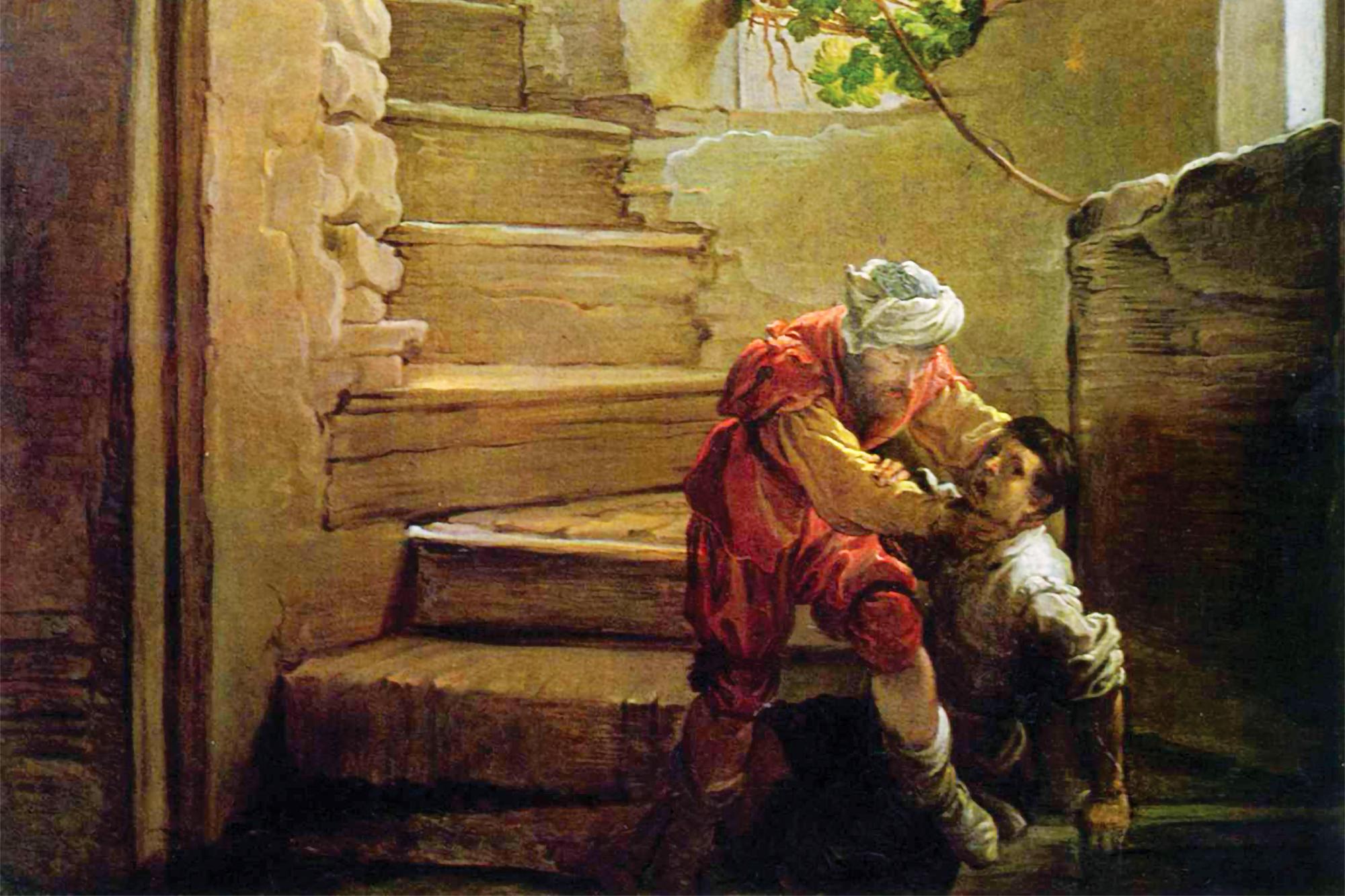27th Sunday of the Year A
Readings: Isaiah 5:1‑7 Philippians 4:6‑9 Matthew 21:33‑43
Nothing hurts us more than the ingratitude and irresponsibility of loved ones. In this Sunday's readings both Isaiah's song of the vineyard and Jesus' parable of the wicked tenants tell us that God too is wounded by ingratitude and expects justice from the people who have received his bountiful blessings. Aware of our sins in failing to respond to God's favor, let us pray for the opportunity to begin again in the words of the responsorial psalm. “Once again, O Lord of hosts,/ look down from heaven, and see;/ take care of this vine,/ and protect what your right hand has planted” (Ps 80:15‑16).
Isaiah's allegory gives a poignant picture of the Lord's disappointment in Jerusalem and Judah during the 8th century B.C. when both the city and nation were corrupted with injustice and violence. Using the figure of a "friend" who planted a "vineyard," the prophet begins the lyrics of a love song by describing how his friend lavished care on his vineyard (his beloved). “He spaded it, cleared it of stones,/ and planted the choicest vines;/ within it he built a watchtower,/ and hewed out a wine press.” Sadly, when he "looked for the crop of grapes," the vineyard only yielded "wild grapes." Now the prophet, speaking for his friend, asks the "inhabitants of Jerusalem and men of Judah" to "judge between me and my vineyard." Surely their sympathy is with the friend who asks "What more was there to do for my vineyard that I had not done?" They can then understand why the friend decides to give up on the vineyard that yielded wild grapes and "Take away its hedge, give it to grazing,/ break through its wall, let it be trampled."
The parable's punch line comes at the end when the prophet announces: “The vineyard of the Lord of hosts is the house of Israel,/ and the men of Judah are his cherished plant;/ he looked for judgment, but see, bloodshed!/ for justice, but hark, the outcry (of injustice)!”
The second reading continues the selections from Philippians with Paul's appeal to the community to settle their disputes by coming "to a mutual understanding in the Lord" (Phil 4:2). He suggests two ways of doing this. First of all, they are to present their "needs to God in every form of prayer and in petitions full of gratitude." Their common prayer will give them "God's own peace, which is beyond all understanding." Secondly, their "thoughts should be wholly directed to all that is true, all that deserves respect, all that is honest, pure, admirable, decent, virtuous, or worthy of praise." Paul again promises that if they live in this way, and in imitation of what he has done and taught, "Then will the God of peace be with you."
The parable of the wicked tenants continues Jesus' attack on the chief priests and elders which began with the parable of the two sons in last week's gospel. Using the imagery of Isaiah's song of the vineyard, Jesus' parable is an allegory for the religious leaders' repeated rejections of God's call for justice and their plans to now kill Jesus. The parable begins with vineyard owner's attempts to collect rent from his tenants in the form of a share of the grapes at vintage time. We hear that twice the rebellious tenants not only refused to pay the owner but also seized his slaves and “beat one, killed another and stoned a third.” Finally, the vineyard owner decides to send his son, thinking, “They will respect my son.” When the wicked tenants see the son, they recognize him as the heir and decide to kill him so that they may “have his inheritance.” The parable ends with the tenants apparently succeeding in their plan. They seize the son, drag him outside the vineyard, and kill him. But the tenants have tragically miscalculated, for the vineyard owner is still alive, and so Jesus asks the chief priest and elders, “What do you suppose the owner of the vineyard will do to those tenants when he comes?” With great irony, the leaders condemn themselves by saying, “He will bring that wicked crowd to a bad end and lease his vineyard out to others who will see to it that he has grapes at vintage time.”
Rather than simply limiting this parable to a judgment of the chief priests and elders of Jesus' time, let us hear it as a warning to ourselves. We, as tenants in the Lord's vineyard, have the responsibility to respond to God's call for the fruits of right judgment, justice, and peace. Have we met the challenge or have we attempted to steal the inheritance for ourselves?



